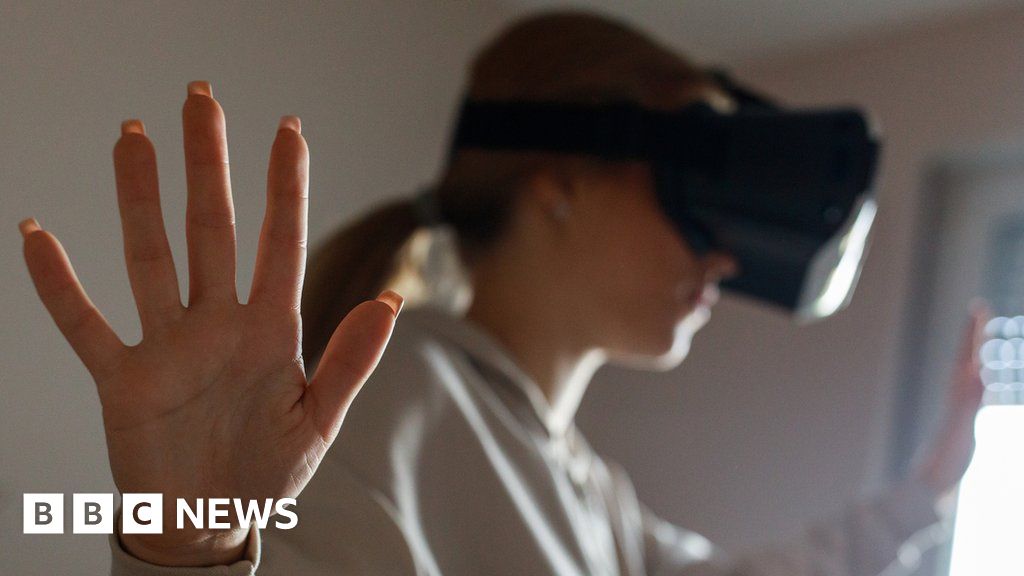- By Chris Vallance
- Technology reporter, BBC News
Image source, Getty Images
Police are investigating a virtual sexual assault of a girl’s avatar, the chair of the Association of Police and Crime Commissioners has said.
Donna Jones said she had learned that a complaint was made in 2023, triggering a police inquiry.
The virtual incident did not result in physical harm but caused “psychological trauma”, the Daily Mail has reported a source as saying.
Police chiefs have called on platforms to do more to protect their users.
Ian Critchley of the National Police Chiefs’ Council (NPCC) wrote that the metaverse – a collective name given to a range of virtual 3D spaces and technologies – had created a “gateway for predators to commit horrific crimes against children, crimes we know have lifelong impacts both emotionally and mentally”.
“We must see much more action from tech companies to do more to make their platforms safe places”, he added.
The NPCC was unable to tell the BBC which force had launched the investigation into the attack.
The impact of the attack on the girl’s avatar was said to be heightened because of the immersive nature of the VR experience.
According to an unnamed senior officer familiar with the matter who spoke to the paper the victim, under 16 at the time, suffered psychological trauma “similar to that of someone who has been physically raped”.
But in criminal law, rape and sexual assault require there to have been physical contact.
Some argue that legal changes may be necessary to ensure that those responsible for sexually motivated attacks on avatars in virtual worlds can be prosecuted and punished effectively.
But others suggest there may be existing laws, for example against the creation of synthetic child abuse images, which could be used as the basis of prosecutions in virtual world cases.
Ms Jones told BBC Radio 4’s World at One programme on Tuesday: “The police are having to work quickly. They’re having to work in conjunction with the government, particularly with the Ministry of Justice, to highlight where there need to be changes in legislation.”
It is not the first time that concerns about sexually motivated attacks in the metaverse have been raised.
In 2022, researcher Nina Jane Patel revealed she was abused in a virtual world operated by Meta called Horizon Venues (now part of Horizon Worlds), likening it to sexual assault.
Recalling the experience, Ms Patel told the same programme that she was “surrounded by three to four male-sounding and male-representing avatars, who started sexually harassing me in a verbal sense and then sexually assaulting my avatar”.
She said they had used misogynistic language and “continued to touch my avatar in a way that can only be described as a sexual assault of my avatar”.
Ms Patel added she was worried that, in the future, technology might allow someone to physically feel such virtual assaults.
The National Crime Agency has previously warned that police will need to be ready to deal with virtual sexual assaults in the future.
The BBC has not yet confirmed on which platform the attack on the young girl’s avatar took place but Meta has said in a statement: “The kind of behaviour described has no place on our platform, which is why for all users we have an automatic protection called personal boundary, which keeps people you don’t know a few feet away from you.
“Though we weren’t given any details about what happened ahead of this story publishing, we will look into it as details become available to us.”
Meta also employs a number of technologies specifically designed to limit teenage users’ exposure to offensive content and interactions with people they do not know.

William Turner is a seasoned U.K. correspondent with a deep understanding of domestic affairs. With a passion for British politics and culture, he provides insightful analysis and comprehensive coverage of events within the United Kingdom.








